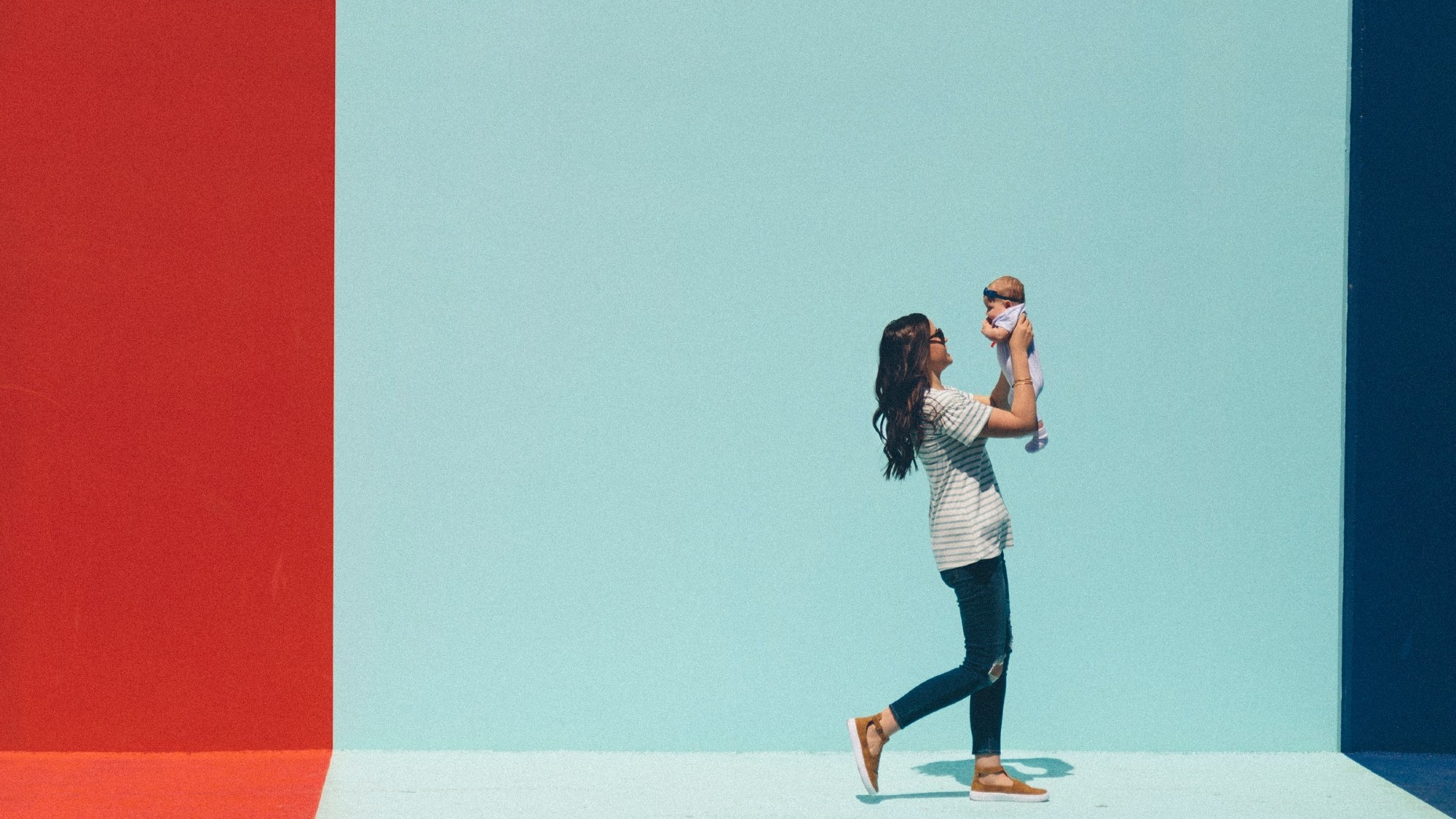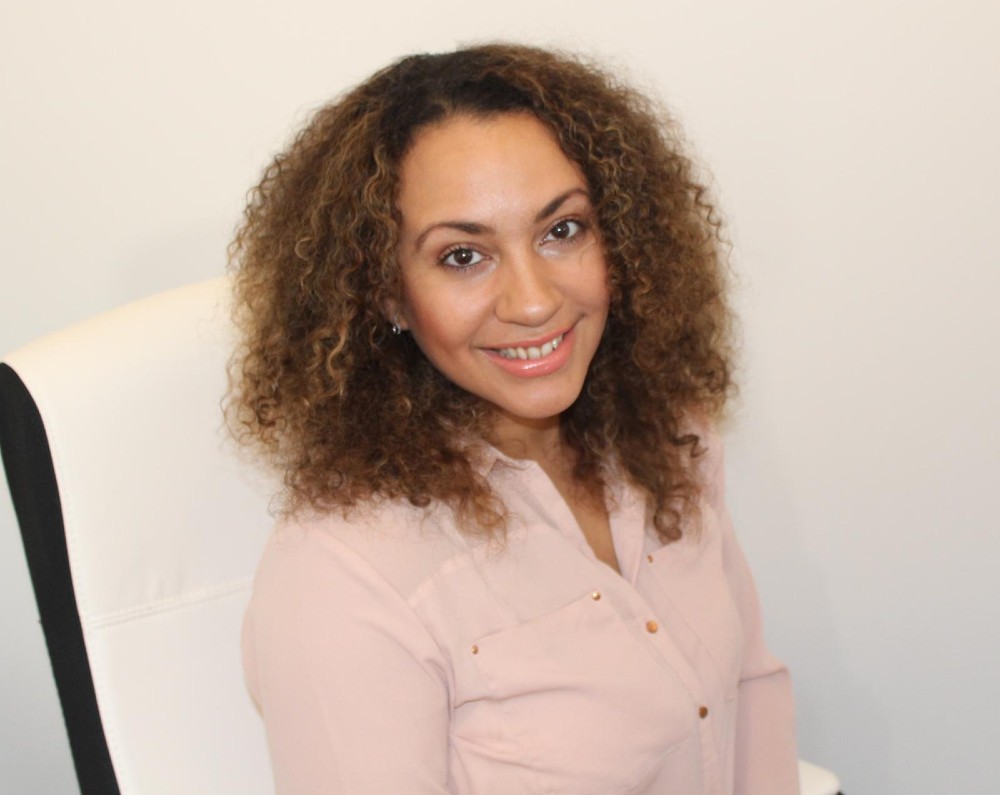How to prepare for a baby when you have a mental health condition
To mark Maternal Mental Health Awareness Week, Marley Hall aka @midwifemarley shares what to do if you have a pre-existing mental health condition and want to have a baby. She's one of the UK’s leading midwives, so you're in safe hands


To mark Maternal Mental Health Awareness Week, Marley Hall aka @midwifemarley shares what to do if you have a pre-existing mental health condition and want to have a baby. She's one of the UK’s leading midwives, so you're in safe hands
How to prepare for a baby is one of life's big questions and one of life’s most monumental events and with so many women experiencing mental health problems perinatally, caused by a myriad of factors (such as PTSD, biological causes, lack of support, stressful living conditions etc) it’s important women know they are not alone in their experiences. Maternal Mental Health Week (until May 9), is a week-long campaign dedicated to advocating and raising awareness about those who are suffering from mental illnesses while pregnant or after having a baby.
The Royal College of Obstetricians & Gynaecologists estimated up to one in five women will develop some form of mental health problem during their pregnancy or in the year after birth, and the pandemic has only exacerbated this, with many more women struggling in isolation. Marley Hall (@Midwife Marley) is one of the UK’s leading midwives with over 11 years’ experience in the NHS and private sector. With her wealth of knowledge and depth of passion, she's here to share her expert advice if you are preparing for a baby and have a pre-existing health condition...

Marley Hall on how to prepare for a baby
For many women, planning or adding to your family can feel exciting, daunting and everything in between. If you have a mental health condition and are thinking of having a baby or preparing to have a baby, you may be wondering if there is anything you need to be aware of, or what support is available should you need it. I have worked with hundreds, if not thousands of women over the years with one form of mental health condition or another and making sure they are well supported throughout pregnancy and after is key.
It’s important to know that most women with mental health conditions have healthy pregnancies and babies with the right treatment and care. Regardless of whether you are on medication or not, it is good to speak with your doctor or specialist prior to conceiving or if the pregnancy comes as a surprise, as soon as you suspect you are pregnant. Some NHS trusts offer pre-conception counselling so ask if this is available in your area.
Common concerns surrounding conception and mental health conditions
Some medications may make it harder to conceive or may not be suitable for use in pregnancy. For this reason, it’s important to discuss with your doctor or specialist before stopping any birth control. Your doctor may be able to prescribe a different medication depending on your needs, ensuring that the one chosen is best for your health and your baby. You can also discuss how a pregnancy may affect your mental health; some women find that symptoms exacerbate during pregnancy or may come back after birth, even if it was previously well controlled. Seeking advice and support before and during pregnancy can help reduce the risk of having a quick and serious change in mental health postnatally.
You may be wondering what questions to ask your doctor, prior to conceiving. Here are some that may help you get a better understanding of how having a baby may affect you and your health.
Marie Claire Newsletter
Celebrity news, beauty, fashion advice, and fascinating features, delivered straight to your inbox!
* Is the medication I’m on suitable for use in pregnancy and will it have an impact on conception?
* I’m not currently on medication for my mental health, what is the risk of my condition getting worse or needing medication?
* How might being pregnant or giving birth affect me?
* Are there any risks of not treating my condition during pregnancy?
* If my condition isn’t treated with medication, is there
* Is it likely that my condition and/or treatment could affect my parenting?
* Are there any specialist mental health support services locally specifically for pregnancy?
* Could I have some information on support services available after I have had my baby
Maintaining a healthy lifestyle
As well as looking after your mental health, it’s important to consider your physical health when thinking about trying to conceive. If you smoke, it can be really hard to stop, particularly if you have a mental health condition as you may use smoking as a way to cope. There is plenty of support out there, ask your GP about the local smoking cessation service. Smoking can affect fertility as well as the growth and wellbeing of your baby. Alcohol can be similarly damaging, regardless of whether you have a mental health condition or not, it’s not recommended to drink during pregnancy as ‘safe’ amounts have not been confirmed. As you are usually already a couple of weeks pregnant before a pregnancy test detects it, it’s best to begin healthy lifestyle practices sooner rather than later.
Who will be involved in my care when I’m pregnant?
Prior to you conceiving, you will most likely have contact with your GP and mental health specialist if you have one. When you find out you’re pregnant, you will have an initial meeting with a midwife who will discuss your medical history including physical health, family health, previous pregnancies, current mental wellbeing and any medication taken. Based on this meeting, the midwife will likely make a referral to the maternity team at the hospital. There, you may be offered support from a specialist midwife who works with perinatal mental health, and an obstetrician. The team will work together to care for and support you and your baby throughout your pregnancy, and you may have extended support after the birth too.
It’s good to know what to expect once you’ve had your baby, what signs to look out in terms of your health declining, and to have the right support. This way if symptoms exacerbate quickly after the birth, getting prompt help and treatment can assist with a faster recovery. The hormonal changes that occur during and after pregnancy, in addition to caring for a newborn, can be tough going. Having a supportive network of friends and family can be extremely helpful but if you don’t, there are other places you can look to access support. MIND charity have a useful page that you may want to bookmark for later.
* In addition to MIND, there are some amazing organisations out there that offer support and information to people pregnant or planning a baby, including Perinatal Positivity, PANDAS and Tommy’s
The most important thing to remember is that navigating through pregnancy, birth and parenthood with a mental health condition is not impossible. There may be ups and downs but by accessing support early, the chances of you having a smoother ride increase exponentially.
You can find Midwife Marley at www.midwifemarley.com and follow her on Instagram @midwifemarley
Maria Coole is a contributing editor on Marie Claire.
Hello Marie Claire readers – you have reached your daily destination. I really hope you’re enjoying our reads and I'm very interested to know what you shared, liked and didn’t like (gah, it happens) by emailing me at: maria.coole@freelance.ti-media.com
But if you fancy finding out who you’re venting to then let me tell you I’m the one on the team that remembers the Spice Girls the first time round. I confidently predicted they’d be a one-hit wonder in the pages of Bliss magazine where I was deputy editor through the second half of the 90s. Having soundly killed any career ambitions in music journalism I’ve managed to keep myself in glow-boosting moisturisers and theatre tickets with a centuries-spanning career in journalism.
Yes, predating t’internet, when 'I’ll fax you' was grunted down a phone with a cord attached to it; when Glastonbury was still accessible by casually going under or over a flimsy fence; when gatecrashing a Foo Fighters aftershow party was easy-peasy-lemon-squeezy and tapping Dave Grohl on the shoulder was... oh sorry I like to ramble.
Originally born and bred in that there Welsh seaside town kindly given a new lease of life by Gavin & Stacey, I started out as a junior writer for the Girl Guides and eventually earned enough Brownie points to move on and have a blast as deputy editor of Bliss, New Woman and editor of People newspaper magazine. I was on the launch team of Look in 2007 - where I stuck around as deputy editor and acting editor for almost ten years - shaping a magazine and website at the forefront of body positivity, mental wellbeing and empowering features. More recently, I’ve been Closer executive editor, assistant editor at the Financial Times’s How To Spend It (yes thanks, no probs with that life skill) and now I’m making my inner fangirl’s dream come true by working on this agenda-setting brand, the one that inspired me to become a journalist when Marie Claire launched back in 1988.
I’m a theatre addict, lover of Marvel franchises, most hard cheeses, all types of trees, half-price Itsu, cats, Dr Who, cherry tomatoes, Curly-Wurly, cats, blueberries, cats, boiled eggs, cats, maxi dresses, cats, Adidas shelltops, cats and their kittens. I’ve never knowingly operated any household white goods and once served Ripples as a main course. And finally, always remember what the late great Nora Ephron said, ‘Everything is copy.’